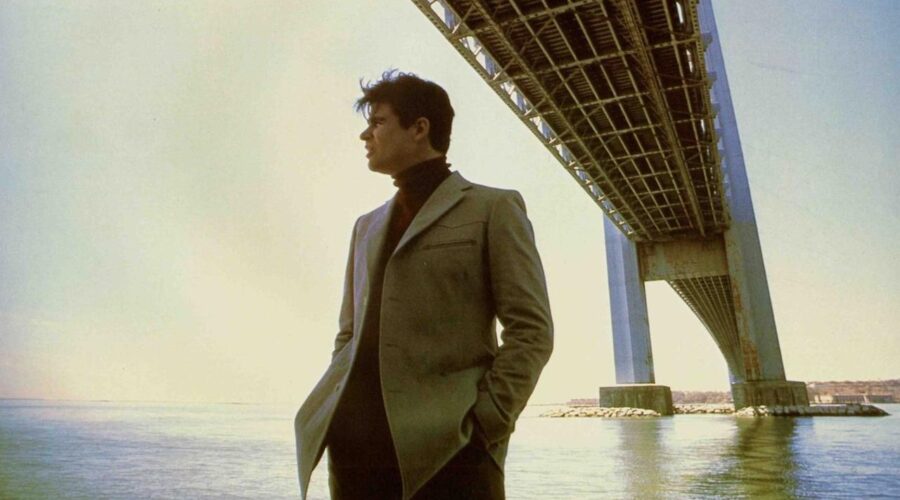According to the Knapp Commission, apparently there were two kinds of cops in New York in the 1970s. The first were Grass Eaters, police officers who accepted small bribes instead of issuing a parking ticket or rolling an illegal gambler. The second were Meat Eaters, officers who looked for the action, shaking down pimps, ripping off mob guys or robbing drug dealers. These cops convinced themselves they were in the right and that it was their duty to take the dirty money that would otherwise pay for the best defence lawyers putting scumbags back on the streets.
The Big Apple’s finest had a cancer that threatened to eat right through to their rotten core. Prince of the City (Sidney Lumet) takes us right to the heart of that canker. Periodically, Lumet got his hands dirty with New York’s bent cops in Serpico, Q & A and Midnight Falls on Manhattan, but those films never probed the squalid depths frequented by Prince of the City.
If those films were the movie equivalents to Grass Eaters then Prince of the City is most definitely the alpha carnivore.
Head of the pack is super-cop Danny Ciello, one of the detectives who form the elite Special Investigative Unit (SIU) of the narcotics division. Danny is the youngest by eight years and is tough, resourceful and fearless. The SIU make their own rules, make their own cases and live by a strict code of brotherhood, explained by Danny as, “I sleep with my wife, but I live with my partners.”
SIU swagger through a derelict New York like blue Mafioso, expensive leather trench coats flowing in their wake; facials, manicures and cigars the rewards for another “star-studded” bust.
Danny and his partners inhabit New York before it received a Rudy Giuliani crime enema (how badly that’s aged now), piggy backing on the success of David Dinkins’ “Safe Streets, Safe Cities” programme. The infamous French Connection smuggled heroin into the city, power blackouts were frequent, and street gangs like the Reapers, Black Spades and the Latin Kings ruled the Five Boroughs. Danny calls himself the “Black sheep” of the family as he decided to become a cop rather than a wise guy like his cousin Nick. When the two of them are together it’s hard to tell where the policeman stops and the gangster starts.
This moral ambiguity is what makes Prince of the City such a punishing experience. We’re never clear about Danny’s true motivation to wear a wire against his fellow cops, but then again neither is Danny.
His torment starts from the opening frame when he wakes from a bad dream, pangs of conscience perhaps? When he first meets the Chase Commission, he seems intrigued rather than repelled.
Does Danny want to come clean and make a difference, escape the unrelenting bullshit of the streets or just save his own ass at the expense of his partners?
When he visits investigators Rick Cappalino and Brooks Paige he rants, “What is it? What do you want? I didn’t do it, whatever it is. Why don’t you do something important, like investigate lawyers? I mean, you were in the Manhattan D.A.’s office, right?” Cappalino is perplexed by the attack, the ramblings of a madman, “Danny, you called me. So why are you here?”
Confused, Danny’s confession lasts into the early hours of the morning intercut with barrages of abuse aimed at everyone remotely connected to the justice system. By the time Danny is finished we’re as exhausted as he is.
And this is just the beginning.
Is Danny a “Prince” in the Hamlet mould? Skulking about the ruined turrets of the NYPD haunted by the ghosts of the cops he used to respect? He bemoans his existence and the fall of his kingdom to usurpers both real and imagined to anyone who will listen. Has his depression made him terminal? Cappalino and Paige suspect he has a suicidal streak when Danny keeps his weapon locked in the trunk of his car. Has Danny decided not to defend himself if his pals make him? Ready to take a bullet rather than suffer the shame of being ostracized by his partners?
Or is Danny the Machiavellian “Prince” bending with the icy winds of change chilling the bones of a dying police department? Danny reveals that he has spent ‘all my life lying” so why should he change now when his own liberty is at stake? Fooling pimps, junkies and South American drug-dealers is one thing but did he really believe he could outsmart rooms of lawyers from Washington? Danny is out of his league consumed by guilt, riddled with anxiety until he assumes the role of junkie himself, hooked on pills, the endless wire taps and the infinite court cases.
If it wasn’t for Prince of the City’s labyrinth plot, vast array of secondary characters and depiction of a city on the brink of collapse we may never have had shows like The Wire. Two vital components bind Lumet’s masterpiece together, the late Treat Williams’ extraordinary bipolar examination of the tortured Danny and the simple, yet terrifying device of exposing the identity cards of the cops who are about to be implicated and indicted before we really know who they are.
Perhaps the most poignant moment in the film is when Danny is offered $70,000 to start a new life by a mob friend, an act put into sharp perspective when Cappalino and Brooks are promoted, leaving him to drown in his Kafkaesque nightmare.

